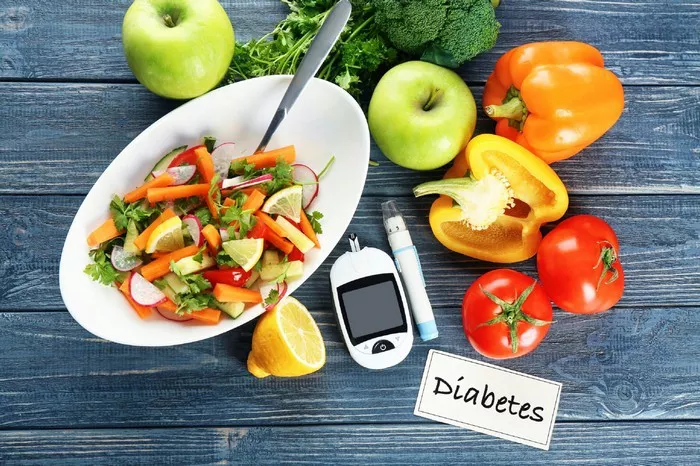Hearing loss is a condition that can affect anyone, but for those with diabetes, the risk is significantly higher. A study in 2021 revealed that people with diabetes are twice as likely to experience hearing loss compared to those without. The risk extends even to individuals with prediabetes, who are 30% more likely to develop hearing loss than those with normal blood sugar levels.
Katie Koebel, an audiologist and senior manager at HearingLife Canada, explains that diabetes-related hearing loss is primarily due to damage to the nerves and blood vessels in the inner ear. This damage is similar to what occurs in other parts of the body affected by diabetes, such as the kidneys and heart. Additionally, low blood sugar levels can reduce the nerve signals received by your ears, further contributing to hearing loss.
Types of Hearing Loss
Hearing loss can be categorized into two main types:
Conductive Hearing Loss: This occurs when something blocks the sound waves from traveling through the ear, such as fluid or earwax. It is often treatable with medication or surgery.
Sensorineural Hearing Loss: This is the most common type of permanent hearing loss, caused by damage to the inner ear or auditory nerve. Factors include genetic conditions, aging, exposure to loud noises, and certain illnesses. This type is usually managed with hearing aids or cochlear implants.
Some people may experience mixed hearing loss, which involves both conductive and sensorineural factors.
The Diabetes-Hearing Loss Connection
The exact link between diabetes and hearing loss is not fully understood, but the damage to blood vessels and nerves caused by high blood sugar is a key factor. Additionally, certain medications used to manage diabetes-related conditions, such as diuretics for heart or kidney issues, can damage the inner ear, leading to hearing loss.
If you’re taking diuretics and notice changes in your hearing, it’s essential to consult with your healthcare provider and a hearing specialist.
Recognizing Symptoms
Hearing loss often develops gradually, making it difficult to notice at first. Common symptoms include:
- Frequently asking others to repeat themselves
- Struggling to follow conversations, especially in noisy environments
- Difficulty hearing quieter voices or high-pitched sounds
- Needing to increase the volume on devices like the TV
- Persistent ringing in the ears (tinnitus)
If you experience any of these symptoms, it’s important to get screened for hearing loss.
Preventing Hearing Loss
Taking steps to protect your hearing is crucial, especially if you have diabetes:
Regular Hearing Screenings: The American Speech-Language-Hearing Association recommends that adults without risk factors get screened every 10 years, and every three years after age 50.
Managing Blood Sugar Levels: Keeping your blood sugar within the target range can help prevent damage to the small blood vessels and nerves in the inner ear. A study found that people with type 2 diabetes and an A1C of 8% or higher had a higher rate of hearing loss.
Ear Protection: Use earplugs or other protection at concerts and other loud events. This is particularly important for people who work in noisy environments.
Quit Smoking: Smoking is linked to an increased risk of hearing loss, along with other serious health conditions.
Tools for Managing Hearing Loss
Several tools and technologies can assist those with hearing loss, including:
Hearing Aids: These range from over-the-counter options to prescription devices tailored to your specific level of hearing loss.
Smartwatches and Vibration Alerts: For people using insulin pumps or continuous glucose monitors (CGMs), connecting these devices to a smartwatch can help by sending vibration alerts for high or low blood sugar levels.
Assistive Apps: Apps like Dexcom Follow and LibreLinkUp allow you to share CGM data with family members or caregivers. Speech-to-text apps can also aid in communication.
Social Support and Accessible Education
Social support is vital for managing both diabetes and hearing loss. Engaging with support groups can provide valuable insights and encouragement from others facing similar challenges. Additionally, programs like Deaf Diabetes Can Together (DDCT) offer accessible diabetes education tailored to individuals with hearing loss.
Conclusion
While hearing loss is common as people age, those with diabetes are at a higher risk. By taking preventive measures, staying informed, and utilizing available tools, you can protect your hearing and manage both conditions effectively. Above all, patience and flexibility are key to navigating life with diabetes and hearing loss.
Related topics:
Medtronic and Abbott Join Forces to Develop New Diabetes Tech
Abbott and Medtronic Partner to Integrate CGM System & Insulin Delivery Devices
COVID-19 Linked to Higher Diabetes Risk, Vaccination Reduces Impact

























